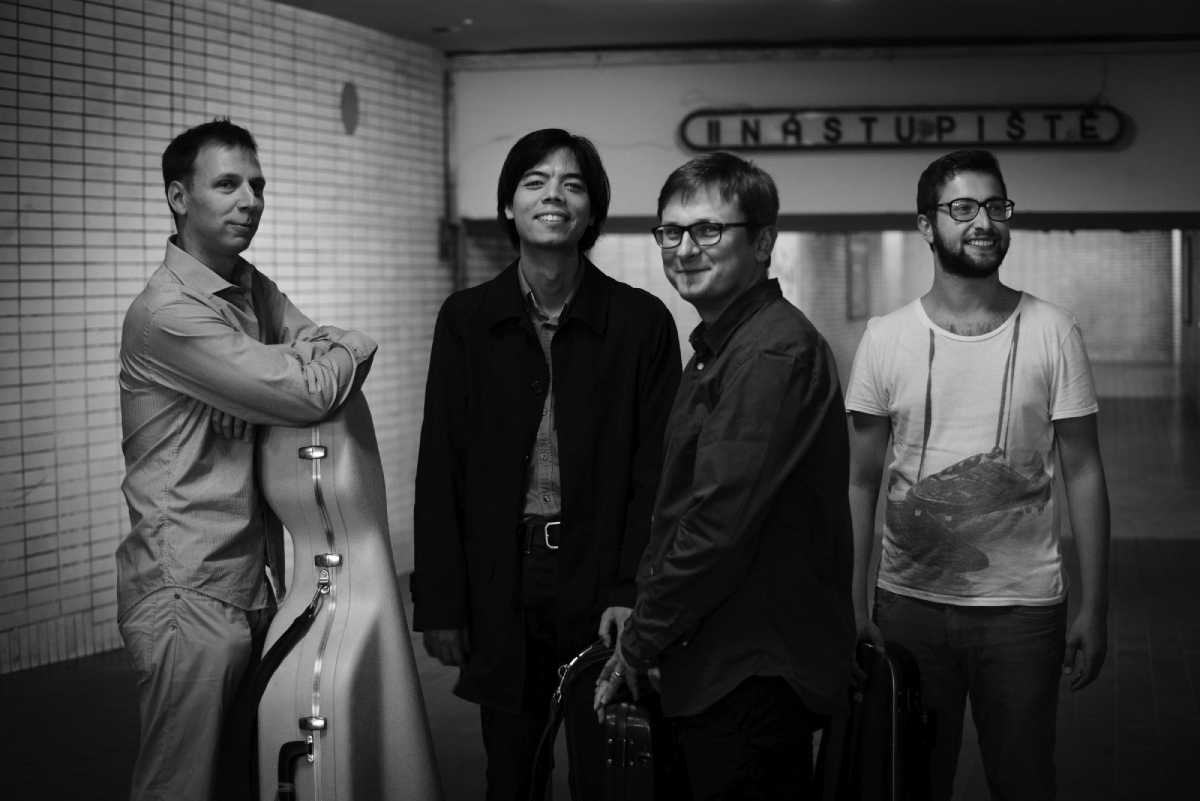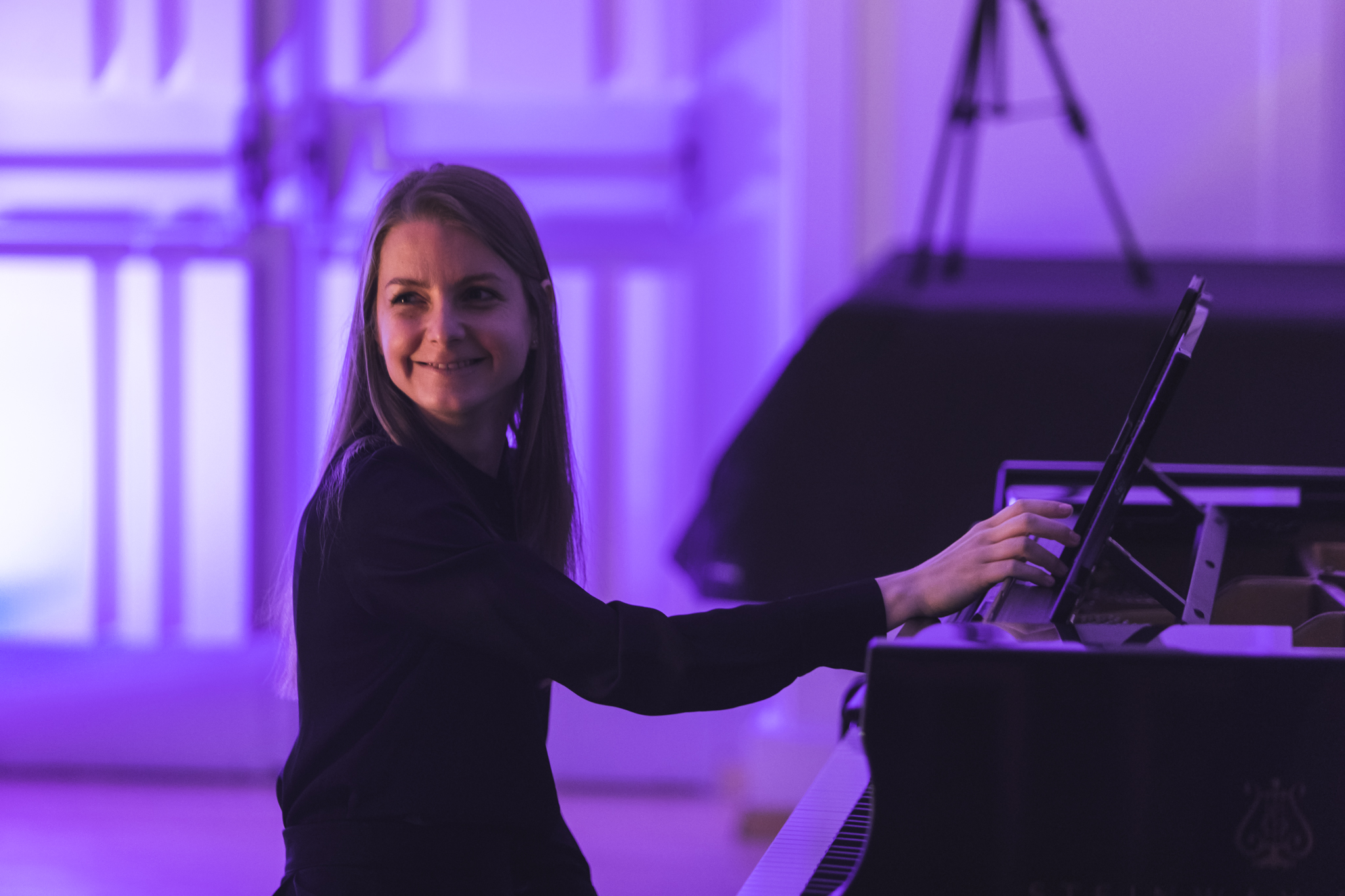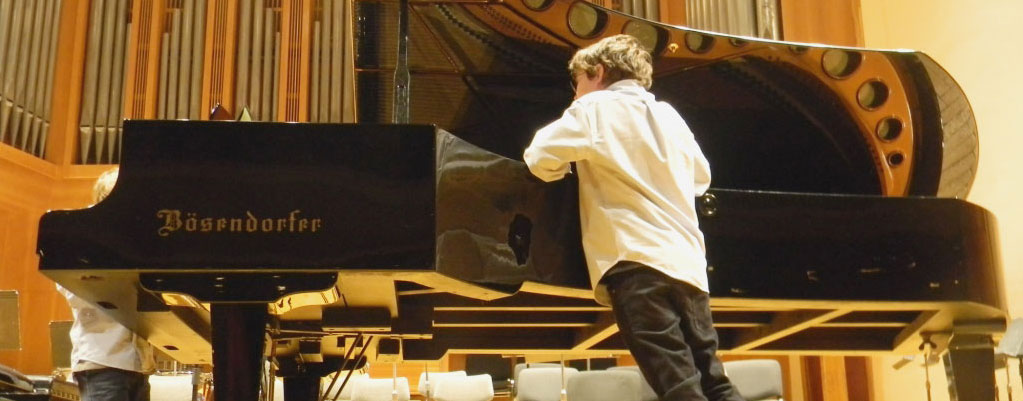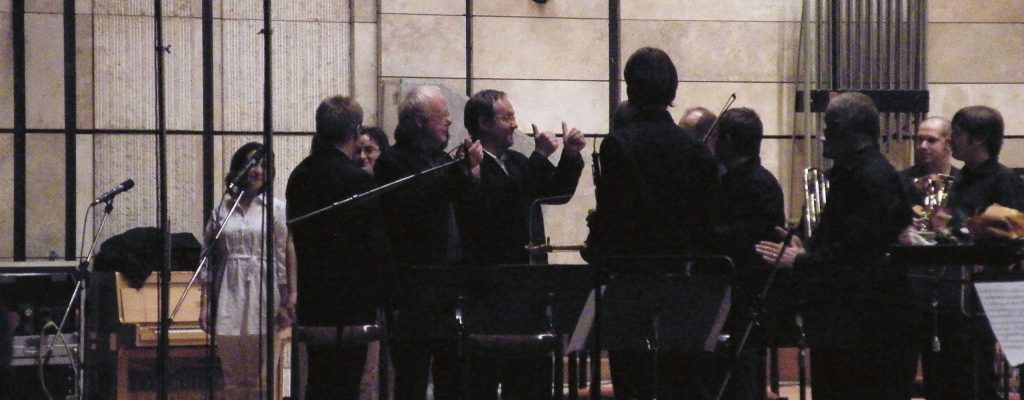19 May 2025 – Bratislava, Concert Hall Dvorana
Continuing its mission to give voice to young Slovak composers, the student festival Orfeus entered its 24th edition with a tribute to Vladimír Bokes – a teacher at the Academy of Performing Arts in Bratislava (VŠMU) and a key figure of Slovak musical avant-garde. The second concert, titled Orfeus Chamber, showcased the diversity of approaches among a new generation of composers in their quest for an expressive and convincing contemporary sound.
The evening opened with Zuzana Zamborská’s enthusiastic performance of Bokes’s piano works – the sparkling 5 Etudes full of his characteristic humor, the lyrical Romance, Op. 35, and the Little Suite, where the world of childhood came to life with energetic sonic colors. In String Quartet No. 2 by Matej Ricotti, the rhythmic complementarity and carefully constructed structure with contrasting harmonic fields were especially engaging. Among the quartet members, cellist Barbora Klapalová stood out with a captivating tone quality. Skilled pianist Elisabeth Lesan made the most of the modal harmonies in 2 Etudes, Op. 30 by Ľuboš Gabčo. In the performance of Gabčo’s Fantasy Divinum Mysterium, Op. 28, violinist Miroslav Mačuha and pianist Jozef Kovalčík displayed technical finesse, seamless coordination, and artistic balance.
The second set of pieces opened with SONATA – Homenaje a F. M. Torroba, Op. 2 by Benjamín Maga – a three-movement work paying homage to the 20th-century Spanish composer who enriched the modern guitar repertoire. The well-matched pairing of guitarist Adam Svitač and cellist Ken-Wassim Ubukata resulted in a surprisingly natural blend of Spanish musical temperament with a classical-romantic gesture. In her cycle Ecce, Homo! Viktória Kürthyová explored the human condition from childhood to the afterlife. Despite the ambitious concept, the musical material occasionally felt overly direct – childhood portrayed through playful folkloric motifs, youth as chaotic dissonances, and adulthood in a weighty cantilena. However, the string quintet instrumentation and the thoughtful composition and interpretation of five-part textures brought a refreshing element. Stanislav Plyaka’s introspective works (But between thousands and thousands and Unconsciously written) offered a meditative exploration of sound, marked by subtle dynamics and expressive nuances. The latter piece, demanding in interpretative understanding, stood out for its expressivity under the precise leadership of conductor Táňa Hrdinka.
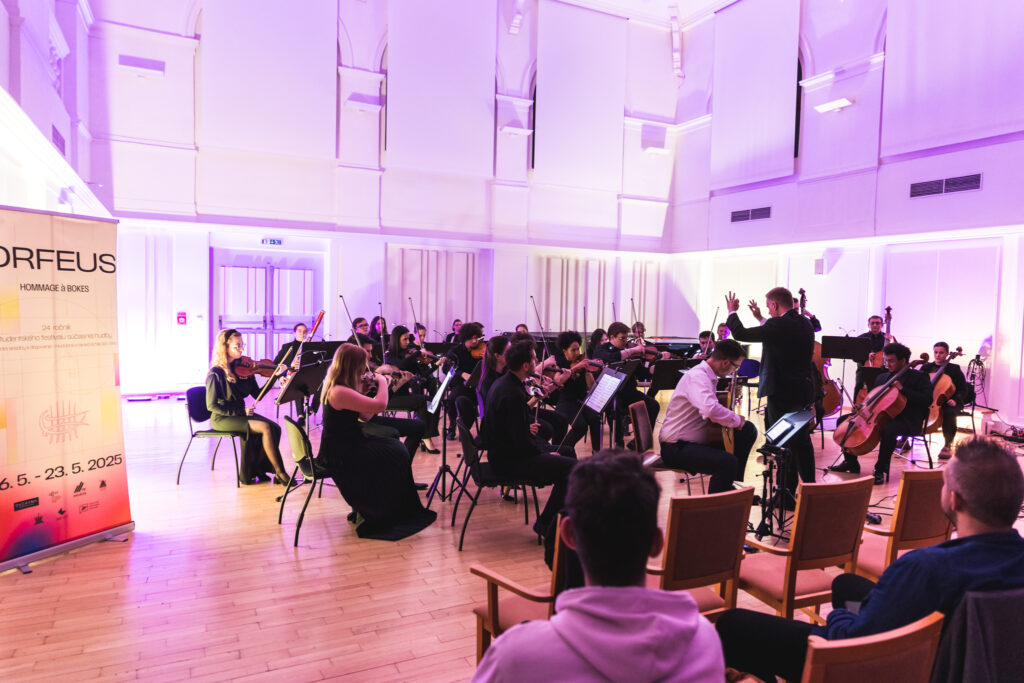
After a short intermission, the audience was treated to a three-movement Guitar Concerto, Op. 61 by Tereza Jaďuďová, followed by a choral-orchestral arrangement of the sacred song Ave Maria by Ervin Roman Fulmek. The concerto attempted a bold synthesis of musical influences – Spanish idioms, sentimental film-score lyricism, and medieval dance elements. The limitations of this interesting concept became apparent in the stylistic transitions, which at times disrupted the work’s flow. In the most successful final movement, the bold instrumentation occasionally overpowered the solo guitar. Established soloist Adam Svitač delivered a technically confident and emotionally nuanced performance. However, the orchestra responded rather uncertainly to conductor Marián Lejava’s gestures – particularly in the wind section, where noticeable intonation and rhythm issues occurred. The final piece featured standout vocal performances by Viktória Barošová and Tatiana Semeniuk, whose voices formed a cohesive and tastefully emotional duet. The charming female vocal ensemble, however, was at times overpowered by the excessively amplified orchestra – similar to the guitar, which was placed in front of the orchestra.
Regrettably, the last two works suffered from unfortunate dramaturgical and time-related planning. The concert, which ended late in the evening, came across as overly extended – the abundance of large-scale forms within a single program made it difficult for the audience to maintain focused attention. While the intention to provide space for as many composers as possible was understandable and commendable, future editions might benefit from a “less is more” approach.
Aneta FICKOVÁ

